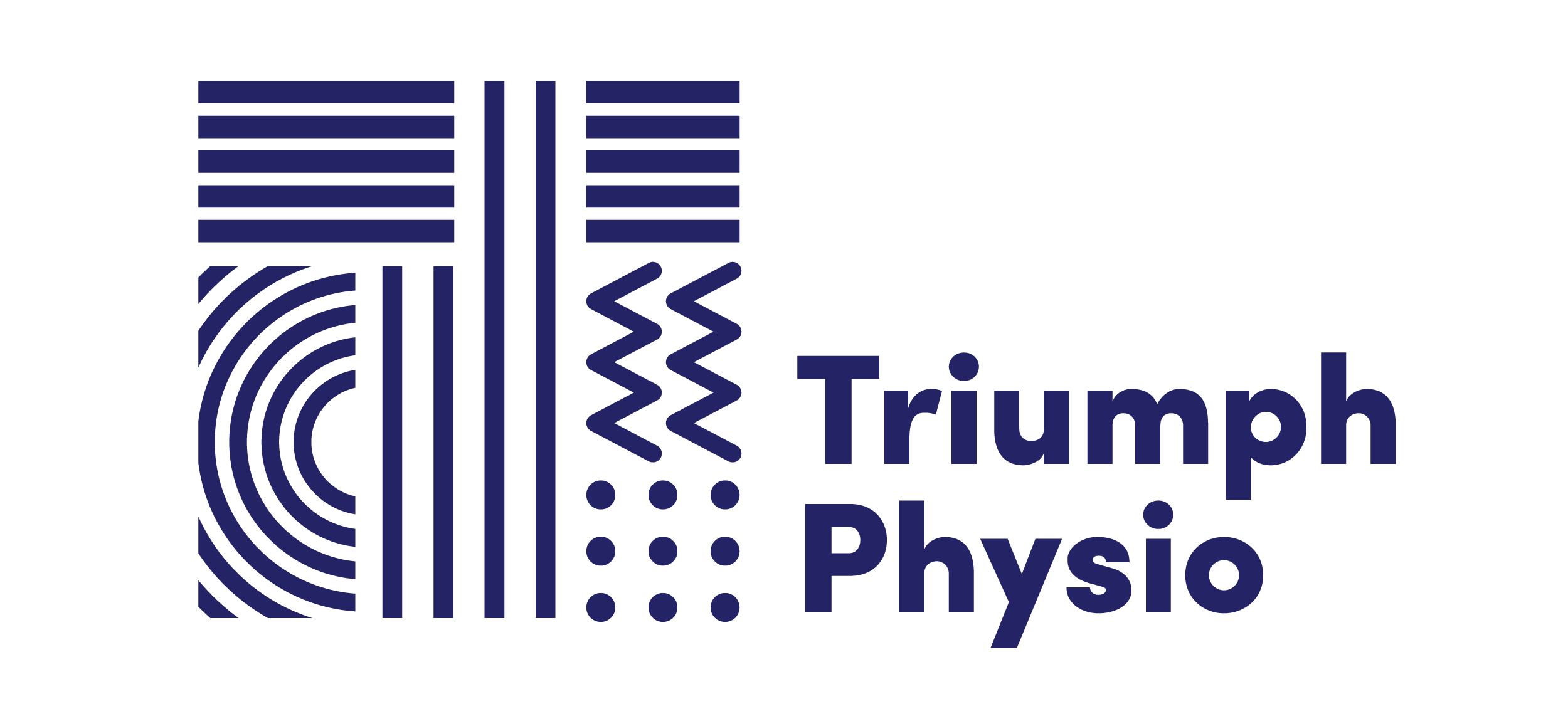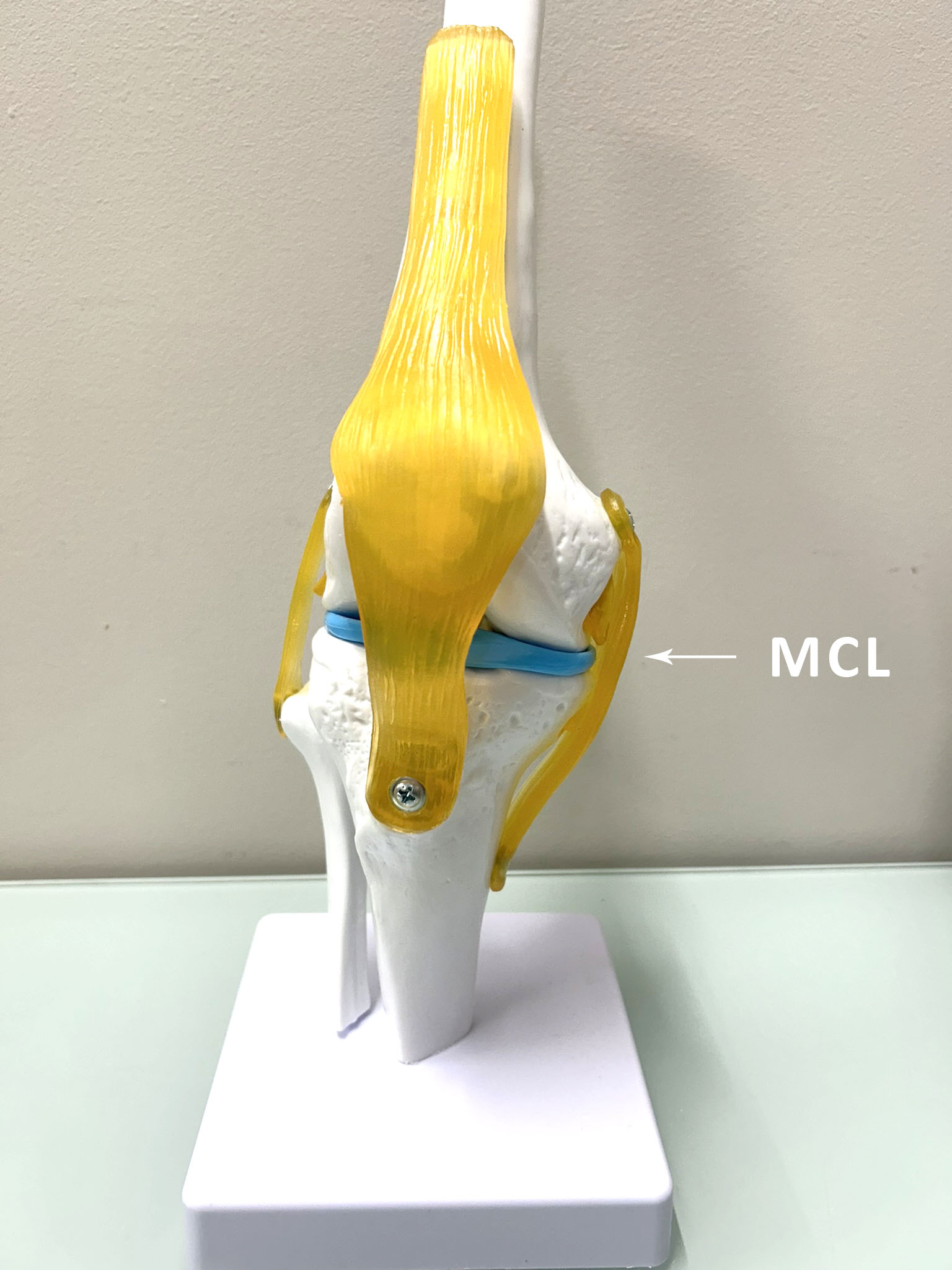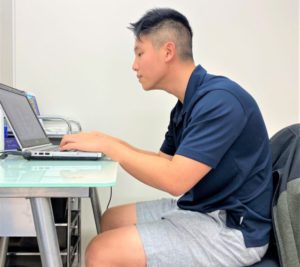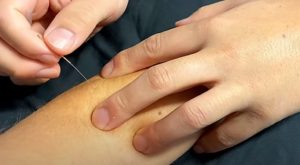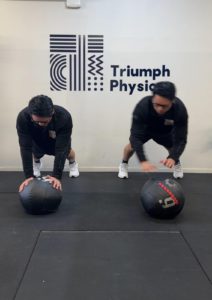Medial Collateral Ligament
If you’ve ever experienced pain or instability on the inside of your knee, you may have injured your medial collateral ligament (MCL). MCL injuries are common, especially among athletes or those involved in high-contact sports. In this article, we’ll break down what an MCL injury is, common symptoms, and how rehabilitation can restore strength and function.
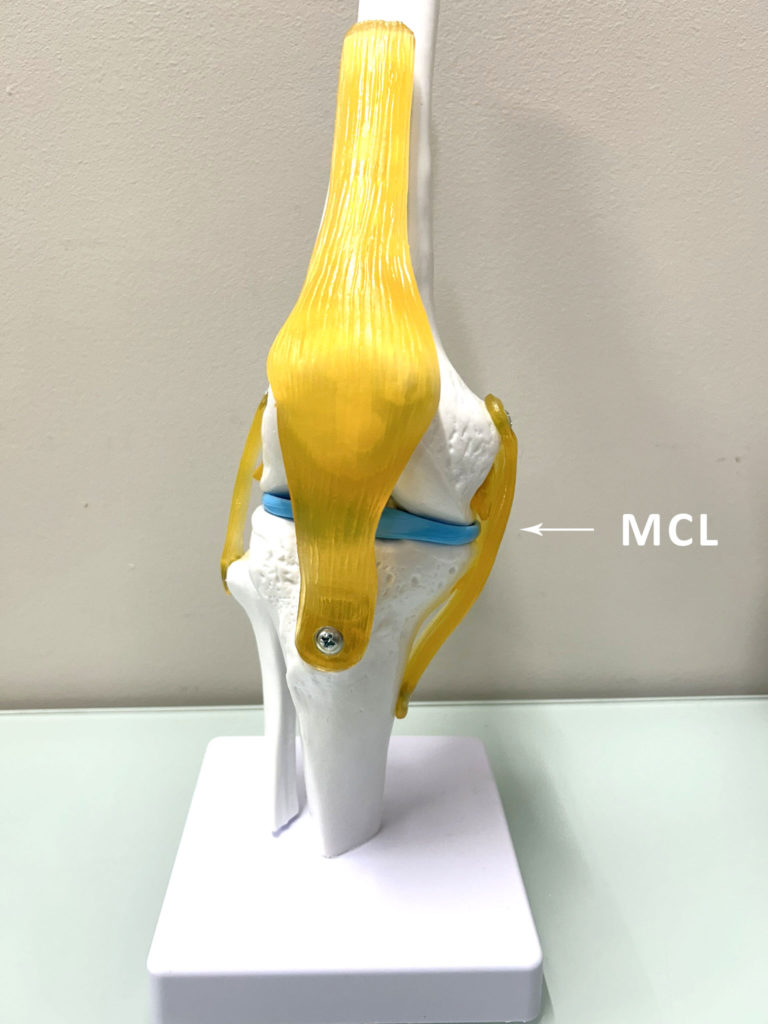
What is a Medial Collateral Ligament (MCL) Injury?
The medial collateral ligament (MCL) is a band of tissue that runs along the inside of your knee, connecting your femur (thighbone) to your tibia (shinbone). Its primary function is to stabilize the knee and protect it from bending too far inward. When the MCL is overstressed—often due to a blow to the outside of the knee—it can stretch or tear, leading to an MCL injury.
Common Causes of MCL Injuries
- Sports Injuries: MCL injuries frequently occur in sports like rugby, football, or basketball where sudden changes in direction and collisions can stress the knee.
- Trauma: A direct blow to the outside of the knee, causing the knee to buckle inwards such as during a fall or accident, can damage the MCL.
- Overuse Injuries: Repeated stress on the knee over time can weaken the ligament, making it more susceptible to injury.
Symptoms of an MCL Injury
The severity of an MCL injury can range from mild to severe, and symptoms typically include:
- Pain on the inside of the knee
- Swelling and tenderness along the ligament
- Difficulty bending or straightening the knee
- Instability or feeling of the knee “giving way” during movement
If you’re experiencing any of these symptoms, it’s important to seek professional advice. Our Auckland-based physiotherapists at Triumph Physio can assess the injury and develop a personalized rehabilitation plan to help you recover.
Medial Collateral Ligament Injury Grading
MCL injuries are classified into three grades, depending on the severity:
- Grade 1 (Mild): The ligament is overstretched but not torn. Recovery typically takes 1-2 weeks.
- Grade 2 (Moderate): Partial tearing of the MCL. Rehabilitation may last 3-4 weeks.
- Grade 3 (Severe): The ligament is completely torn, and recovery could take 6 weeks or more, sometimes requiring surgical intervention.
Rehabilitation for MCL Injuries
Rehabilitation is key to regaining full strength and stability after an MCL injury. Programs should be tailored to each client’s specific injury and recovery goals. Here’s a breakdown of what the rehab process typically involves:
1. Initial Rest and Protection
Immediately after an MCL injury, rest is crucial to prevent further damage. We recommend:
- RICE Protocol: Rest, Ice, Compression, and Elevation to reduce swelling.
- Bracing or Taping: A knee brace can help stabilize the joint and prevent further stress during daily activities.
2. Pain Management and Inflammation Control
In the early stages of rehab, managing pain and inflammation is essential. Your physiotherapist may use:
- Manual Therapy: Gentle massage or mobilization techniques to alleviate pain and improve mobility.
- Modalities: Ice or heat therapy, ultrasound, or electrical stimulation to help with pain and function.
3. Strengthening and Mobility Exercises
Once pain and swelling have subsided, the focus shifts to rebuilding strength and restoring range of motion. A few common exercises include:
- Quad Sets: Strengthening the quadriceps muscles to support the knee.
- Hamstring Curls: Building hamstring strength to enhance knee stability.
- Heel Slides and Knee Flexion: Exercises to gently improve knee flexibility.
These exercises will gradually become more challenging as your strength returns, ensuring a full recovery.
4. Proprioception and Balance Training
Proprioception—your body’s ability to sense its position in space—is often affected by an MCL injury. Balance exercises help retrain the body to react to changes in movement, improving stability and reducing the risk of re-injury. Exercises such as:
- Single-leg stands or
- Wobble board exercises
These are incorporated into later stages of rehab to strengthen your knee and improve balance.
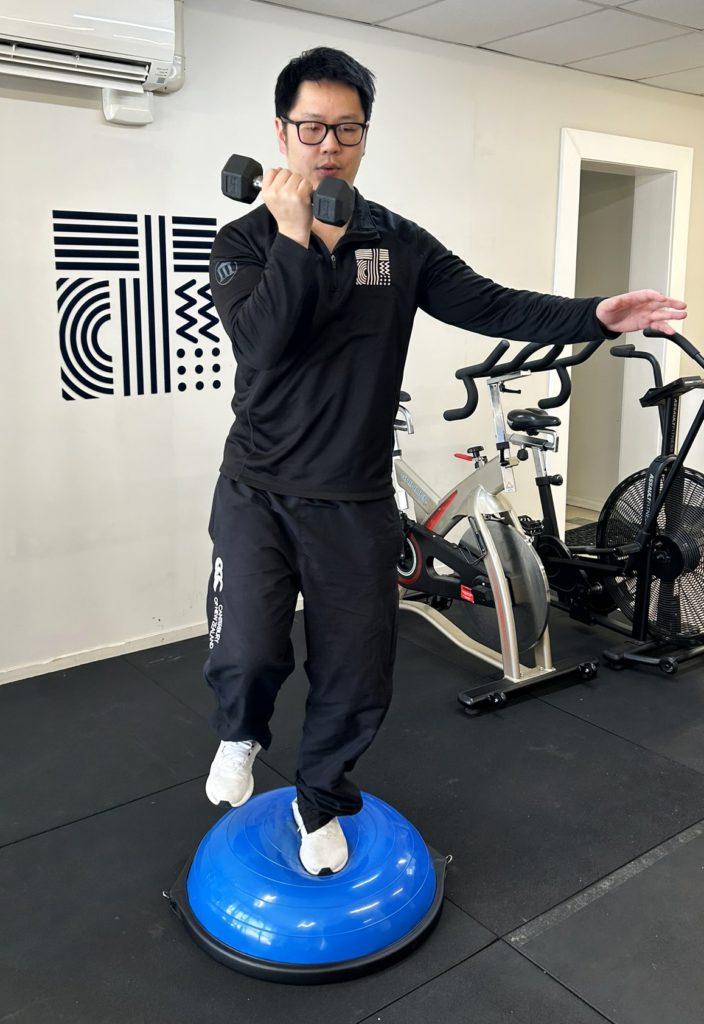
5. Return to Activity and Sport-Specific Training
When you’re nearing the end of your rehabilitation, your physiotherapist will guide you through sport-specific exercises to ensure you’re ready to return to your favorite activities. This phase typically involves. At Triumph Physio you’ll have the option to go to CityFitness gym for end stage rehabilitation to make sure you are ready for sports.
Bookings with a Physio
Triumph Physio in Newmarket or Mount Wellington, Auckland. We have qualified Physiotherapist registered under ACC to help you. For more info call us on 09 526 1448 or book online below
